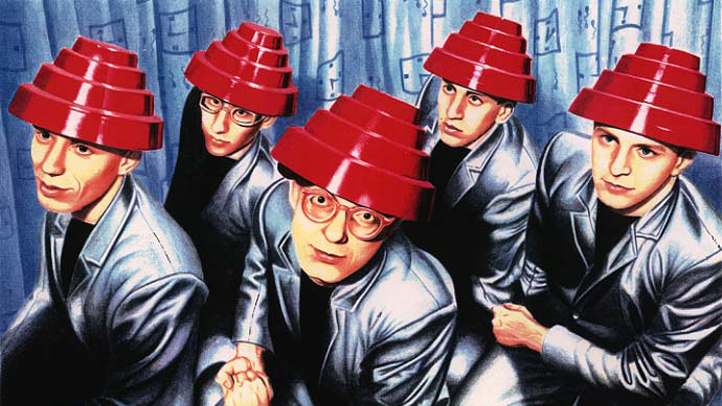A jury has found former Chicago Ald. Ed Burke guilty on 13-of-14 federal corruption charges, tarnishing a decades-long reign as the city's most powerful member of the City Council.
Burke, who turns 80 next week, was indicted in 2019 on 14 counts of racketeering, extortion and bribery, accused of using his immense government power to steer business to his private law firm specializing in property tax appeals. Also charged alongside Burke were his longtime 14th Ward aide Peter Andrews and real estate developer Charles Cui.
Burke was found guilty on 13 of 14 counts he faced, including a count of racketeering that carries a potential sentence of up to 20 years in federal prison. He is scheduled to be sentenced June 19.
Burke was found not guilty on one charge of extortion and interference with commerce, which was Count No. 6 in the indictment.
Cui was found guilty of federal program bribery, three counts of using interstate commerce to facilitate an unlawful activity, and one count of making a false statement to the FBI.
Andrews was acquitted on all charges he faced, including attempted extortion, conspiracy to commit extortions, two counts of using interstate commerce to facilitate an unlawful activity, and one count of making false statements to the FBI.
"On behalf of our client, we are grateful to the 12 jurors who understood what we have known for over four years. Pete Andrews did not belong in this indictment," a statement from Andrews' attorneys read. "Pete served the city of Chicago for 35 years and remains devoted to the people of the 14th Ward his childhood home. Pete's indictment was an overreach, but these verdicts are a well deserved Christmas blessing."
Local
Jurors deliberated for more than 23 hours before convicting Burke and Cui on Thursday afternoon.
The trial began in early November, stretching across six weeks and delayed twice by COVID-19 cases among attorneys. The jury of nine women and three men – the vast majority from the suburbs – began deliberating Monday after more than 300 pages of jury instructions were read out loud.
Feeling out of the loop? We'll catch you up on the Chicago news you need to know. Sign up for the weekly Chicago Catch-Up newsletter here.
After three years as a Chicago police officer, Burke was first elected in a special election to replace his late father as 14th Ward alderman in 1969. He then spent his entire adult life building a clout-heavy empire, leaving office in 2023 as the longest serving alderman in Chicago history.
Long known as the “dean” of Chicago’s City Council, Burke chaired the Finance Committee for more than 30 years, under multiple mayors. With that role came control of not only the largest staff at City Hall, but all financial matters involving the city, including things like workers’ compensation.
As 14th Ward Democratic committeeman, Burke also chaired the judicial slating committee for the Cook County Democratic Party, selecting candidates for judgeships that the party would back every election cycle – a critical endorsement for the judicial races that are often lower-profile.
He was also a prolific political fundraiser, controlling three campaign committees worth more than $10 million to this day – even after spending more than $3 million on his own legal fees since 2019.
A property tax attorney, Burke also helped private clients – including former President Donald Trump – navigate county government to slash their bills. It’s that law firm business that is now at the center of the federal indictment, with prosecutors saying in their opening statements, “He was a bribetaker, and he was an extortionist.”
The indictment centered on four alleged schemes. Prosecutors said Burke withheld his support for the remodeling of a Burger King in his ward, and he and Andrews halted construction over a driveway permit for property in a veiled attempt to steer the company to hire his firm.
The feds also charged Burke used his government power on behalf of Cui after Cui hired his firm with the underlying intention of using his clout to resolve a zoning decision about a pole sign at a Binny’s in a building he owned on the Northwest Side. Burke was also accused of threatening to withhold his support for the Field Museum’s proposed fee increase after his goddaughter’s internship application fell through the cracks at the institution.
The fourth alleged scheme involved the redevelopment of the city’s Old Main Post Office. Prosecutors said Burke dangled his official positions and connections in an effort to lure in the developer to hire his firm for the building’s property tax work. The feds built their case against Burke in that alleged plot by taking the extraordinary step of turning Burke’s City Council colleague into a mole.
Caught in allegations of his own corruption, then-25th Ward Ald. Danny Solis agreed to wear a wire for two years on Illinois’ biggest players: Burke, as well as House Speaker Michael Madigan, also indicted on racketeering and bribery charges last year. Madigan has also pleaded not guilty, with his trial set to begin in the spring.
Solis signed a deferred prosecution agreement in 2018, and those bombshell recordings came to light for the first time at Burke’s trial. Roughly 100 wiretapped calls and secretly recorded meetings were played for the jury over the course of the six weeks, showing Burke asking Solis, in an apparent reference to the Old Post Office business, “Did we land the, uh, tuna?” among other colorful remarks.
Burke’s attorneys called Solis to the witness stand, as one of just two witnesses to testify in his defense. A packed courtroom watched as Burke’s attorney grilled Solis about his cooperation with the feds, asking about the June 2016 day the FBI approached him with evidence of his own alleged crimes of taking bribes like trips and cash, as chair of the City Council Zoning Committee.
“The government showed up at your door?” Burke’s attorney asked Solis, to which Solis replied, “Yes.”
“And you were darn scared, right?” he continued, to which Solis again replied simply, “Yes.”
In his defense, Burke’s attorneys repeatedly highlighted for the jury that Burke did not actually profit from any of the alleged schemes, in closing arguments calling the case “a bunch of noise and a lot of confusion.”
Still, prosecutors contended – Burke need not have profited to find him guilty of attempted extortion, pointing to the secret recordings as the “best evidence” of his intent.
“The crimes alleged here… occurred at the intersection of power and opportunity,” the assistant U.S. attorney said in closing arguments. “Mr. Burke’s power, and when he saw an opportunity to use his power and influence in order to get something for himself, he took it.”



